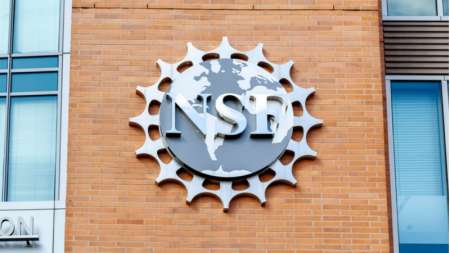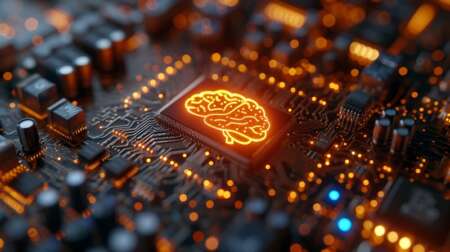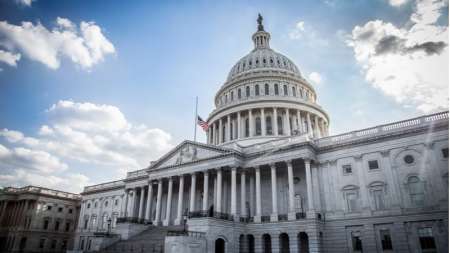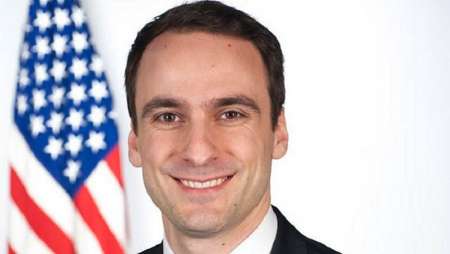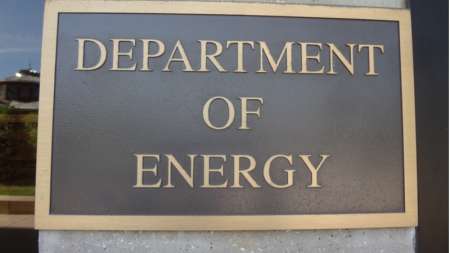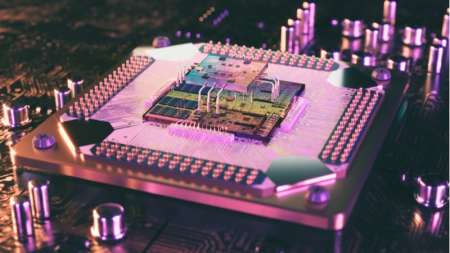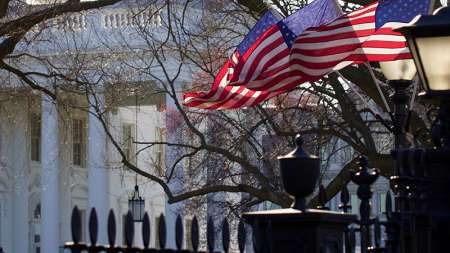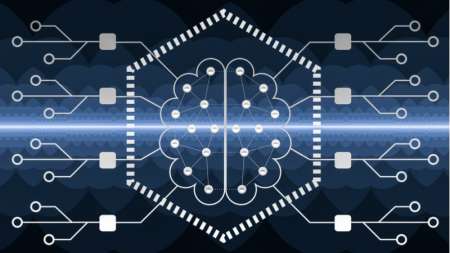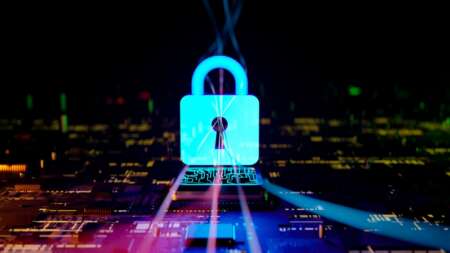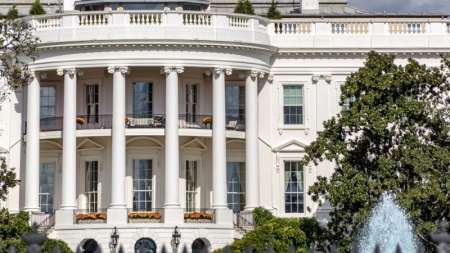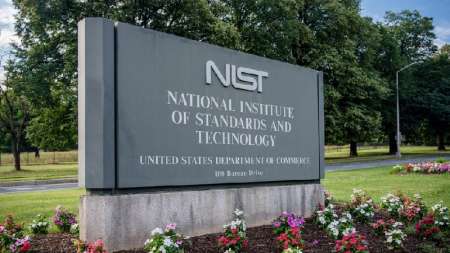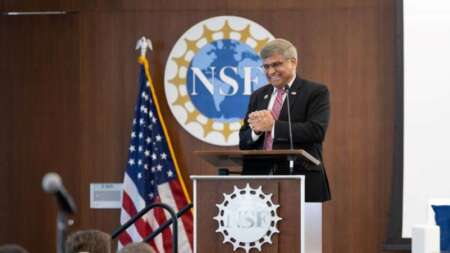Two officials from the National Science Foundation (NSF) are pointing to early indications from the White House’s science and technology agenda as evidence that development of quantum and artificial intelligence technologies will be hot-button issues for the Trump administration. […]
The Department of Energy (DoE) is headed into uncharted territory in its latest efforts in quantum tech – it’s headed to space in collaboration with a growing list of Federal agencies and goals, a top agency official said on Wednesday. […]
Quantum computing is poised to transform industries, including how government agencies operate, but its arrival will bring both exciting possibilities and significant challenges – particularly in cybersecurity. As agencies brace for the potential risks posed by quantum-enabled threats, they must also prepare for disruptions from other emerging technologies on the horizon. […]
Darío Gil, President Donald Trump’s nominee to become the next Energy Department Undersecretary for Science and Innovation, told lawmakers on April 10 that the United States must win the race to build a quantum supercomputer by the end of the decade. […]
Sen. Marsha Blackburn, R-Tenn., introduced three quantum tech-related bills on April 9 which she says will bolster development, manufacturing, and defense applications of quantum technology. […]
Cybersecurity experts told lawmakers on Wednesday that the recent Salt Typhoon hacks should serve as a “wake-up call,” while urging them to focus on bigger, looming cybersecurity threats such as AI and quantum. […]
The National Institute of Standards and Technology (NIST) has selected HQC as its fifth standard for post-quantum encryption, providing an additional layer of security to protect encrypted data against potential threats from future quantum computers. […]
Michael Kratsios, President Donald Trump’s pick to lead the White House’s Office of Science and Technology Policy (OSTP), pledged during his Senate confirmation hearing today to bolster the nation’s efforts in artificial intelligence and quantum technology if confirmed. […]
Microsoft, after teaming up with the Defense Advanced Research Projects Agency (DARPA), last week unveiled a new chip that could fast-track the development of quantum computers and bring them into wider use within years instead of decades. […]
General Dynamics Information Technology (GDIT) and quantum computing equipment maker IonQ are teaming up with a new partnership that aims to boost Federal government agency quantum computing capabilities. […]
The Senate held a pre-nomination hearing on Wednesday for Chris Wright – Trump’s nominee for Department of Energy secretary – in which Wright outlined his plans for expanding nuclear energy technology, AI development, and quantum technology. […]
As 2024 comes to a close, the push for post-quantum cryptography (PQC) and quantum technology is accelerating. With Federal officials warning that quantum threats are approaching sooner than expected, Congress, Federal agencies, and industry have made significant strides toward becoming quantum-ready this year. […]
Six new pilot projects will test quantum technologies and further progress in harnessing quantum phenomena for real-world applications, the U.S. National Science Foundation (NSF) announced on Monday. […]
Quantum technology isn’t just a tool with big national security implications – it also can help save the planet. […]
As president-elect Donald Trump prepares to move into office next month, at least two “czar” appointments have rolled in so far – one for border issues and another covering AI and crypto. […]
New legislation introduced to the Senate on Tuesday would provide $2.7 billion in Federal funding to boost quantum research and development (R&D) at Federal science agencies and government funded research centers over the next five years. […]
The Department of Transportation (DoT) has identified 18 priority areas where quantum technologies could optimize transportation across all modes and has set a timeline for near-term quantum applications DoT could implement in the next one to three years. […]
The Government Accountability Office (GAO) warned today that the Federal government’s shift to post-quantum cryptography will fail due to the lack of one singular entity overseeing and implementing a national strategy addressing the threat. […]
While there are no quantum computers now in operation that threaten current security levels, Federal officials warned on Wednesday that agencies must act now to prepare for when that day comes – because there will be “no safety net” to fall back on. […]
The majority of Federal agencies are still in the early stages of transitioning to post quantum cryptography (PQC), with only seven percent of agencies saying they have a formal PQC plan and project team in place, according to research out today by GDIT. […]
A bipartisan pair of senators is pushing the Department of Defense (DoD) to provide more information on its efforts to advance quantum sensing technology – something the senators note is necessary to protect U.S. national security and outpace potential threats from China. […]
The Commerce Department is pushing for increased financial resources and policy measures to bolster the U.S. quantum information science sector and the broader technology supply chain, said Commerce Deputy Secretary Don Graves on Monday. […]
The advent of quantum computing and sensors will change things “dramatically” for the Department of Defense (DoD) and “very soon,” said a top DoD tech official this week as he shared details about a new project focused on near-term quantum applications and provided updates on the Pentagon’s quantum priorities. […]
As Federal agencies begin their transition to quantum-resistant encryption, Federal officials on Thursday stressed that creating cryptographic agility – meaning the ability to operate agile systems where cryptography elements can be easily changed as needed – will become an even bigger technology issue than the coming changes in post-quantum cryptography (PQC) itself. […]
By Kaniah Konkoly-Thege, Chief Legal Counsel, SVP Government Relations at Quantinuum A lot has taken place in the quantum industry since the National Institute of Standards and Technology (NIST) announced its selection of PQC algorithms for standardization in 2022. From technology to global policy, advancements are causing experts to predict a faster timeline to reaching fault-tolerant […]
The President’s National Security Telecommunications Advisory Committee (NSTAC) announced during its quarterly meeting today that the group plans to study the government’s national preparedness for its transition to post-quantum cryptography (PQC). […]
By: Dr. Matthew McFadden, Vice President of Cyber, GDIT The cybersecurity landscape is evolving rapidly with last week’s release of new post-quantum cryptography (PQC) algorithms by the National Institute of Standards and Technology (NIST). These algorithms mark a critical step forward in preparing for the post-quantum era, providing a roadmap for agencies to begin their […]
The White House’s National Science and Technology Council (NSTC) issued a new report on Monday that offers policy recommendations for the U.S. government in order to advance international cooperation in quantum information science and technology (QIST). […]
The Department of Commerce’s National Institute of Standards and Technology (NIST) today unveiled its first set of three encryption algorithms designed to withstand cyberattacks from a quantum computer – noting that, after nearly a decade of research, they are ready for immediate use. […]
The National Science Foundation (NSF) on Friday announced its initial $5 million investment across five quantum pilot projects, taking the first steps toward creating the NSF National Quantum Virtual Laboratory (NQVL). […]

